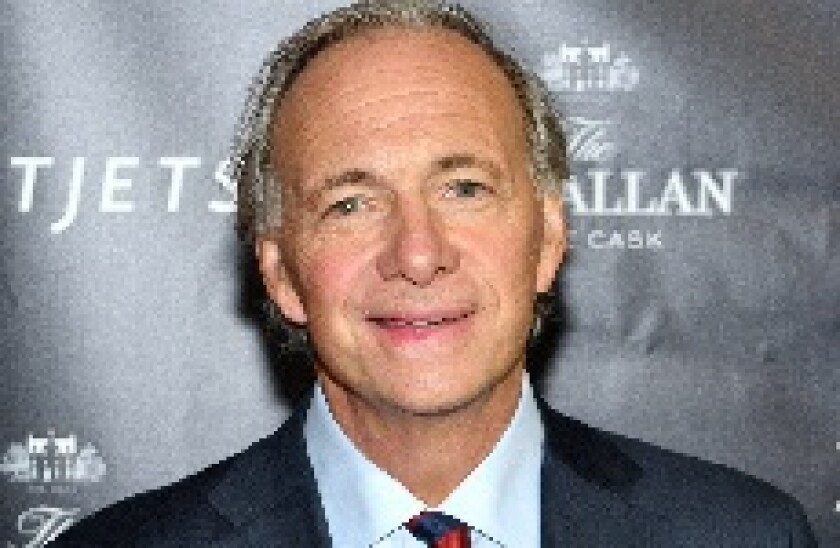Dalio, the founder of Bridgewater Associates, points in a recent LinkedIn post to stagnating incomes for the middle and lower classes in the US and soaring income and wealth gaps between rich and poor. Meanwhile, social mobility is poor and children are badly educated, he laments.
Self-reinforcing feedback loops increase the disparity between rich and poor, for example with the recent college admissions scandal, he notes. Rich parents secured places for their offspring at top colleges through bribes.
Such disparities weaken the US economy.
What is more, “the income/wealth/opportunity gap is leading to dangerous social and political divisions that threaten our cohesive fabric and capitalism itself”, Dalio said.
So what is the solution?
“The problem is that capitalists typically don’t know how to divide the pie well and socialists typically don’t know how to grow it well,” Dalio said.
Instead, he calls for measures including a rethink on taxing the rich, sin taxes for pollution and other causes of bad health, and “powerful forces from the top of the country that proclaim the income/wealth/opportunity gap to be a national emergency”.
None of this need be radical, in international context. In fact, in one large region of the world, higher redistribution to fund public services and reduce inequality does indeed temper capitalism: that region is Europe.
Jamie Dimon, CEO of JP Morgan, hinted at this difference in a recent letter to shareholders where he too meandered around politics and economics.
“It’s essential to have a strong social safety net — and all countries should be striving for continuous improvement in regulations as well as social and welfare conditions,” he said. “Many countries are called social democracies, and they successfully combine market economies with strong social safety nets.”
In 2016 in the US, 20% of national income went to the top 1% and 13% to the bottom 50%, according to the World Inequality Report. In Europe, the figures are more than reversed: 12% went to the top 1% and 22% went to the bottom 50%.
But investors do not seem sufficiently reassured by Europe’s social democracy, or the centre-right Christian democracy alternative, to allocate capital to the continent rather than to the US. This suggests they see no let-up in Europe's sluggish growth relative to the US.
For example, price to earnings multiples of European stocks are consistently lower than US ones. Dalio’s own firm Bridgewater disclosed it had shorted $22bn in European entities at the beginning of last year.
So if the US economy would benefit from becoming more like Europe, why are investors not putting money there?
Perhaps a lack of integration in capital markets and the banking sector in Europe is preventing investors getting too excited, particularly compared with the large and more homogeneous US market.
Earlier this year, Morgan Stanley analysts suggested that in part because of a lack of reform, euro fixed income portfolios should be treated holistically. In other words, different European assets move in tandem and so the distinction made between, for example, US high yield and US RMBS does not make sense in a European context. So much for a European safe asset.
Or maybe investors are too short-termist to care about the long term health of capitalism.
They get a sugar rush from US president Donald Trump’s tax cuts and other supply side reforms, and find it hard to look beyond that. Certainly Trump’s clashes with China seemed to come as a surprise to the market, despite his repeatedly flagging his annoyance at longstanding Sino-American relations during the presidential campaign.
Perhaps when it comes to it, investors by and large disagree with Dalio and Dimon, are quite comfortable with a plutocratic society and see little threat of it devouring itself.
A chief executive of a big US bank wrote recently that Trump’s tax cuts, which increase inequality, “include many of the key ingredients to fuel economic expansion: a business tax rate that will make the United States competitive around the world, along with provisions to free US companies to bring back profits earned overseas”.
That CEO? One Jamie Dimon.

